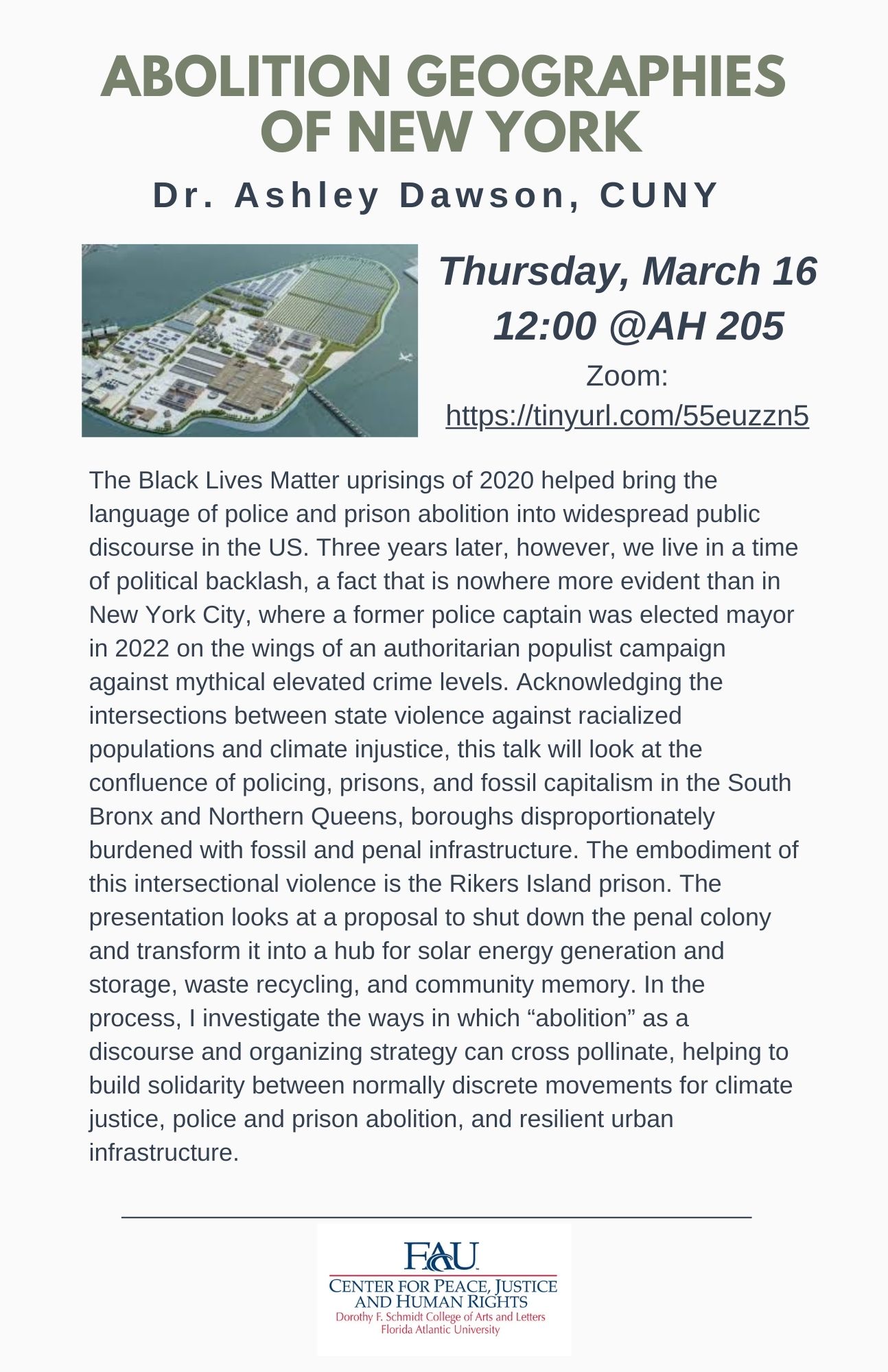Abolition Geographies of New York, Lecture by Dr. Ashley Dawson, CUNY
The Center for Peace, Justice and Human Rights and the Faculty Working Group on Race and Mass Incarceration present a lecture by
Dr. Ashley Dawson, CUNY
Abolition Geographies of New York
Thursday, 3/16 | 12pm | AH 205
The Center for Peace, Justice and Human Rights and the Faculty Working Group on Race and Mass Incarceration are excited to invite you to an upcoming presentation by Ashley Dawson on “Abolition Geographies of New York.” Ashley Dawson is Professor of Postcolonial Studies in the English Department at the Graduate Center, City University of New York (CUNY). He currently works in the fields of environmental humanities and postcolonial ecocriticism. He is the author of three recent books relating to these fields: People’s Power (O/R, 2020), Extreme Cities (Verso, 2017) and Extinction: A Radical History (O/R, 2016).
Join us on Thursday, March 16 at 12:00pm in AH 205 or on Zoom.
The Black Lives Matter uprisings of 2020 helped bring the language of police and prison abolition into widespread public discourse in the US. Three years later, however, we live in a time of political backlash, a fact that is nowhere more evident than in New York City, where a former police captain was elected mayor in 2022 on the wings of an authoritarian populist campaign against mythical elevated crime levels. Acknowledging the intersections between state violence against racialized populations and climate injustice, this talk will look at the confluence of policing, prisons, and fossil capitalism in the South Bronx and Northern Queens, boroughs disproportionately burdened with fossil and penal infrastructure. The embodiment of this intersectional violence is the Rikers Island prison. The presentation looks at a proposal to shut down the penal colony and transform it into a hub for solar energy generation and storage, waste recycling, and community memory. In the process, I investigate the ways in which "abolition" as a discourse and organizing strategy can cross pollinate, helping to build solidarity between normally discrete movements for climate justice, police and prison abolition, and resilient urban infrastructure.
